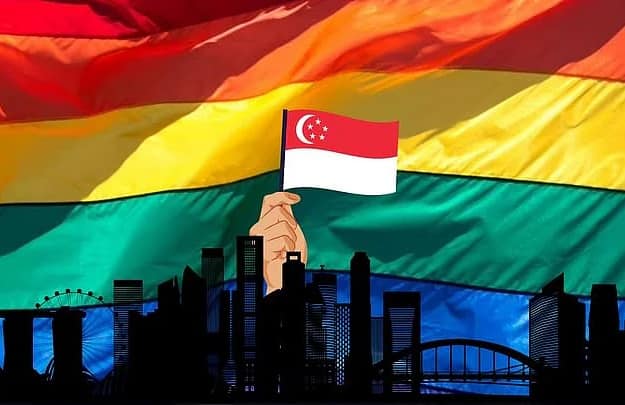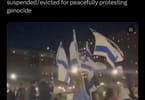Section 377A of Singapore’s colonial-era penal code threatens men with two years in prison if they’re caught in “any act of gross indecency,” essentially referring to any homosexual act.
But on Sunday, Singapore’s Prime Minister Lee Hsien Loong announced that the city-state has revoked a contentious old law banning gay sex.
“I believe this is the right thing to do and something that most Singaporeans would accept,” he said, adding that he hopes the move provides “some relief to gay Singaporeans.”
While it has not been enforced for decades and only applies to men, the ban – similar to laws found in other former برطانوي colonies in south Asia – remained a source of stress for both gay Singaporeans and upwardly-mobile business types trying to convince multinational corporations to open offices there.
Lee did not announce a date for the repeal.
While making the announcement, the Prime Minister also stresses, that regardless of the controversial law’s repeal, Singapore will not let go of its strong conservative values.
سينگاپور will “protect the definition of marriage from being challenged constitutionally in the courts,” he promised.
“We believe that marriage should be between a man and a woman, that children should be raised within such families, that the traditional family should form the basic building block of society,” Lee Hsien Loong added.
Despite Lee’s confidence that “most Singaporeans” would accept the news, 44% of Singaporeans polled in June still supported the ban, though that figure had dropped from 55% in 2018.
Singapore’s gradual movement away from official reprisals for gay sex actually worked against activists looking to have the law struck down earlier this year, when the city-state’s highest court declared that since there was no enforcement, no one’s constitutional rights were being violated if it stayed on the books.
There has also been considerable resistance to normalizing homosexuality among some of the religious groups who call Singapore home, including Muslims, Catholics, and Protestants. However, religious leaders have remained neutral on this latest move.
Lee urged “all groups” to “exercise restraint,” saying “that is the only way we can move forward as a nation together.”
هن آرٽيڪل مان ڇا وٺو:
- While it has not been enforced for decades and only applies to men, the ban – similar to laws found in other former British colonies in south Asia – remained a source of stress for both gay Singaporeans and upwardly-mobile business types trying to convince multinational corporations to open offices there.
- “I believe this is the right thing to do and something that most Singaporeans would accept,” he said, adding that he hopes the move provides “some relief to gay Singaporeans.
- Singapore's gradual movement away from official reprisals for gay sex actually worked against activists looking to have the law struck down earlier this year, when the city-state's highest court declared that since there was no enforcement, no one's constitutional rights were being violated if it stayed on the books.























